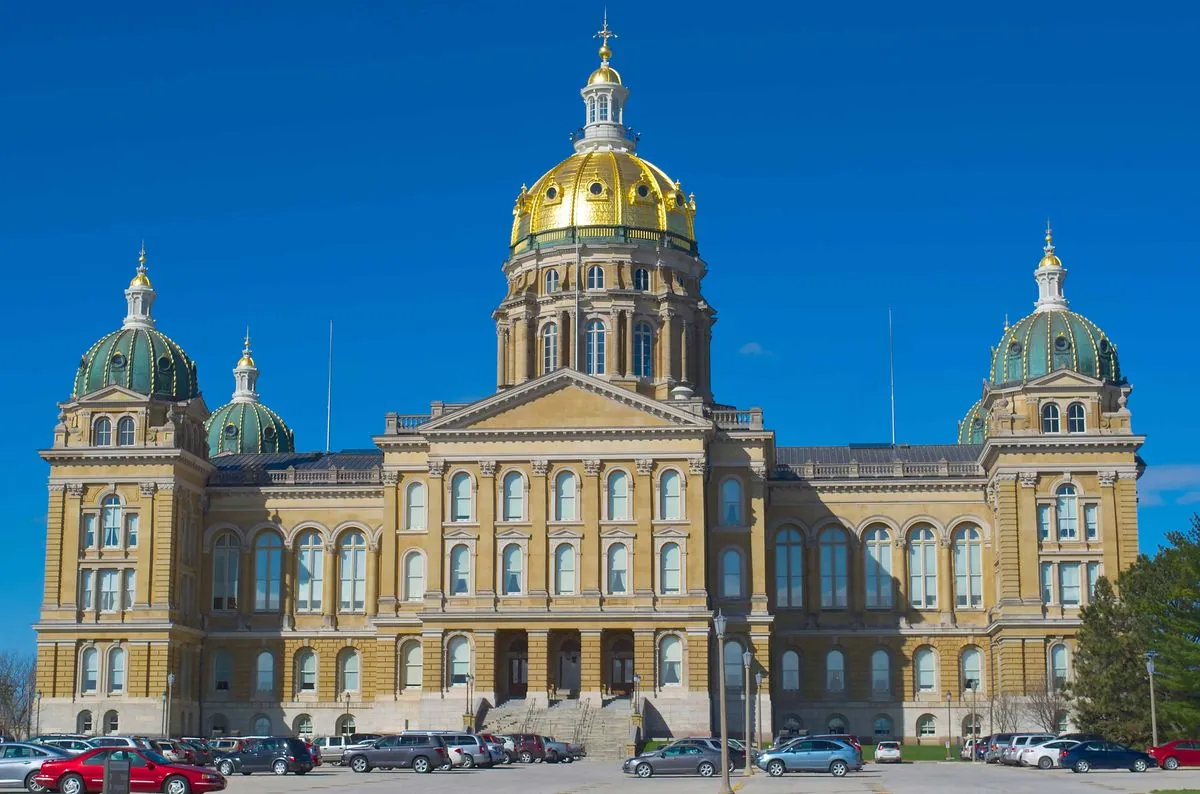In a controversial decision, Iowa's state objection committee has barred three Libertarian Party candidates from appearing on the November 2024 ballot for U.S. House seats. The ruling, made on August 28, 2024, has ignited a debate over ballot access and political fairness in the Hawkeye State.
The committee, comprising two Republican officials and one Democrat, voted 2-1 to uphold challenges against the Libertarian nominees. The challengers, primarily affiliated with the Republican Party, argued that the candidates failed to comply with state law regarding nomination procedures and documentation.
Jules Cutler, chair of the Libertarian Party of Iowa, expressed frustration with the decision, stating that both major parties have "done everything to keep us off the ballot." The party, which gained major party status in Iowa in 2022, plans to appeal the ruling.
The decision could potentially influence the outcome of closely contested races. In 2022, Republican Zach Nunn won his congressional seat by less than a percentage point, highlighting the potential impact of third-party candidates on election results.
"This is a wrong-headed plot by Iowa's uniparty to limit voters' choices."
Sand's accusation of political bias contrasts with the statements of his Republican colleagues. Attorney General Brenna Bird emphasized the need to follow established party status obligations, while Secretary of State Paul Pate described his role as a "referee of elections."
Iowa, which became the 29th state in 1846, has a rich political history, including its first-in-the-nation caucuses. The state's motto, "Our liberties we prize and our rights we will maintain," seems particularly relevant in light of this ballot access controversy.
The Libertarian Party, founded in 1971, has faced similar challenges nationwide. Third-party candidates often struggle to secure ballot positions due to various state laws, a situation that has sparked debates about electoral fairness and voter choice.
As Iowa prepares for the November elections, this decision adds another layer of complexity to the political landscape. With the state's economy rooted in agriculture, manufacturing, and biotechnology, and a population of around 3.2 million, the impact of this ruling on voter representation remains to be seen.
The Secretary of State's office is set to certify the ballots on September 3, 2024, leaving little time for potential appeals. As the situation unfolds, it serves as a reminder of the ongoing challenges faced by third parties in the American political system.
